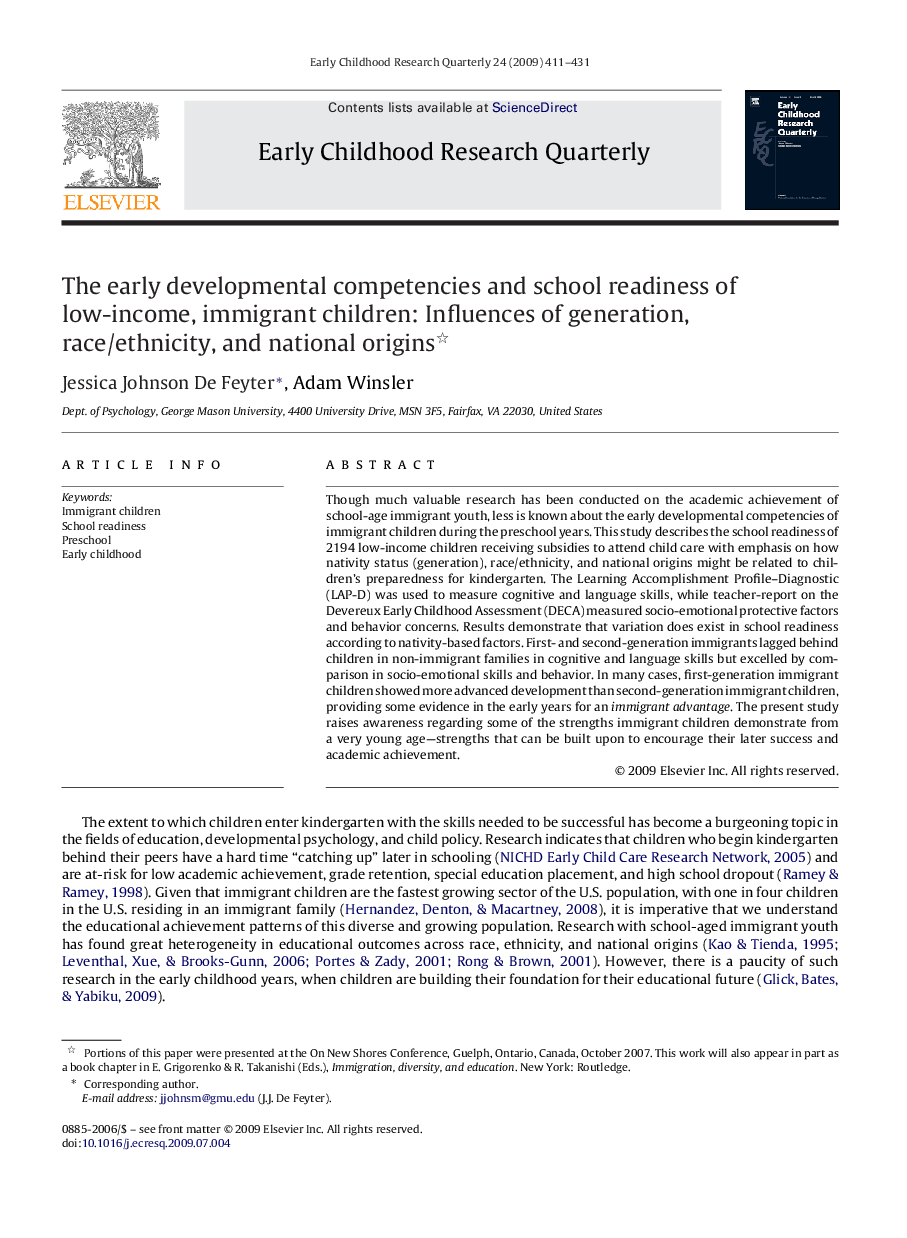| Article ID | Journal | Published Year | Pages | File Type |
|---|---|---|---|---|
| 354208 | Early Childhood Research Quarterly | 2009 | 21 Pages |
Though much valuable research has been conducted on the academic achievement of school-age immigrant youth, less is known about the early developmental competencies of immigrant children during the preschool years. This study describes the school readiness of 2194 low-income children receiving subsidies to attend child care with emphasis on how nativity status (generation), race/ethnicity, and national origins might be related to children's preparedness for kindergarten. The Learning Accomplishment Profile–Diagnostic (LAP-D) was used to measure cognitive and language skills, while teacher-report on the Devereux Early Childhood Assessment (DECA) measured socio-emotional protective factors and behavior concerns. Results demonstrate that variation does exist in school readiness according to nativity-based factors. First- and second-generation immigrants lagged behind children in non-immigrant families in cognitive and language skills but excelled by comparison in socio-emotional skills and behavior. In many cases, first-generation immigrant children showed more advanced development than second-generation immigrant children, providing some evidence in the early years for an immigrant advantage. The present study raises awareness regarding some of the strengths immigrant children demonstrate from a very young age—strengths that can be built upon to encourage their later success and academic achievement.
